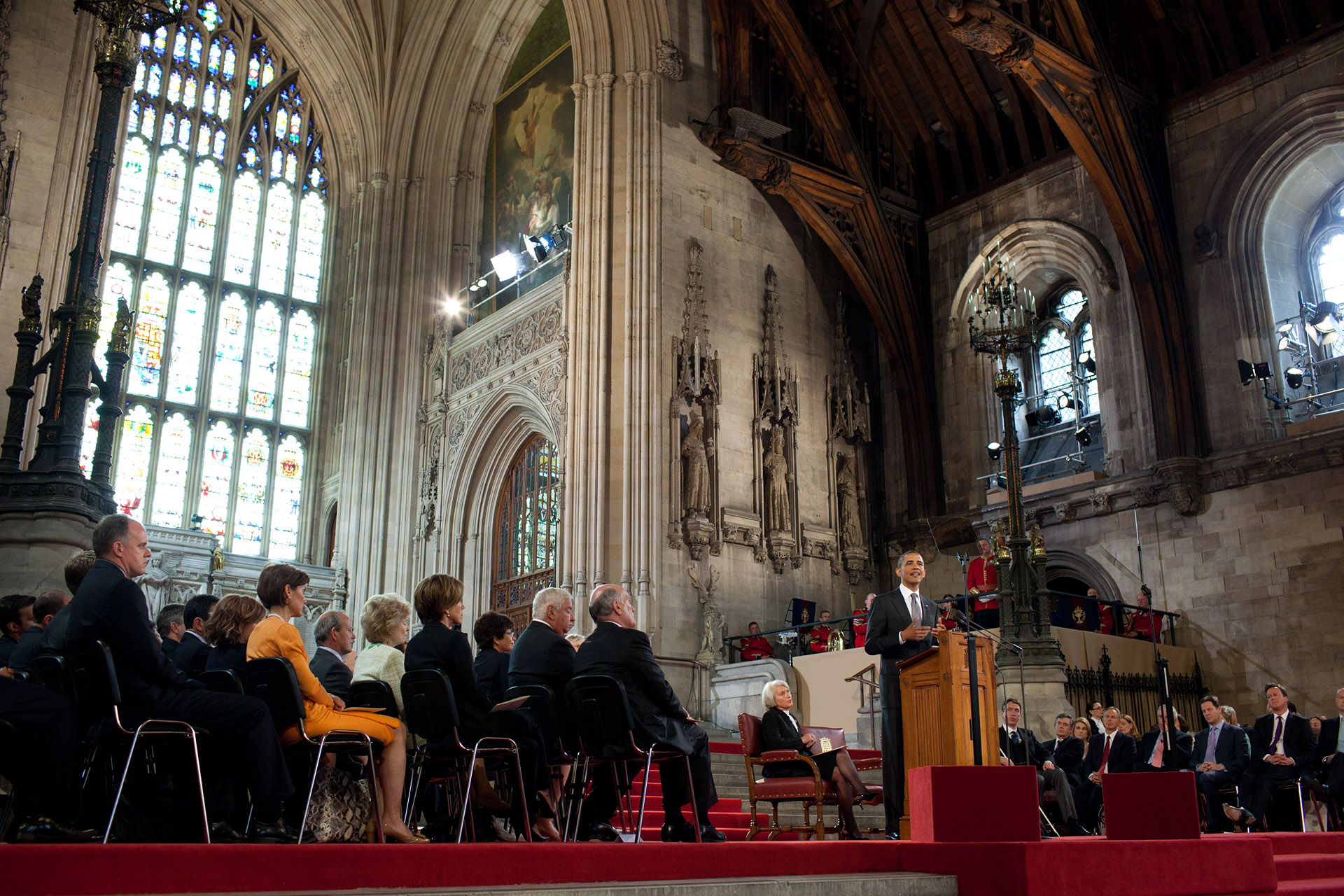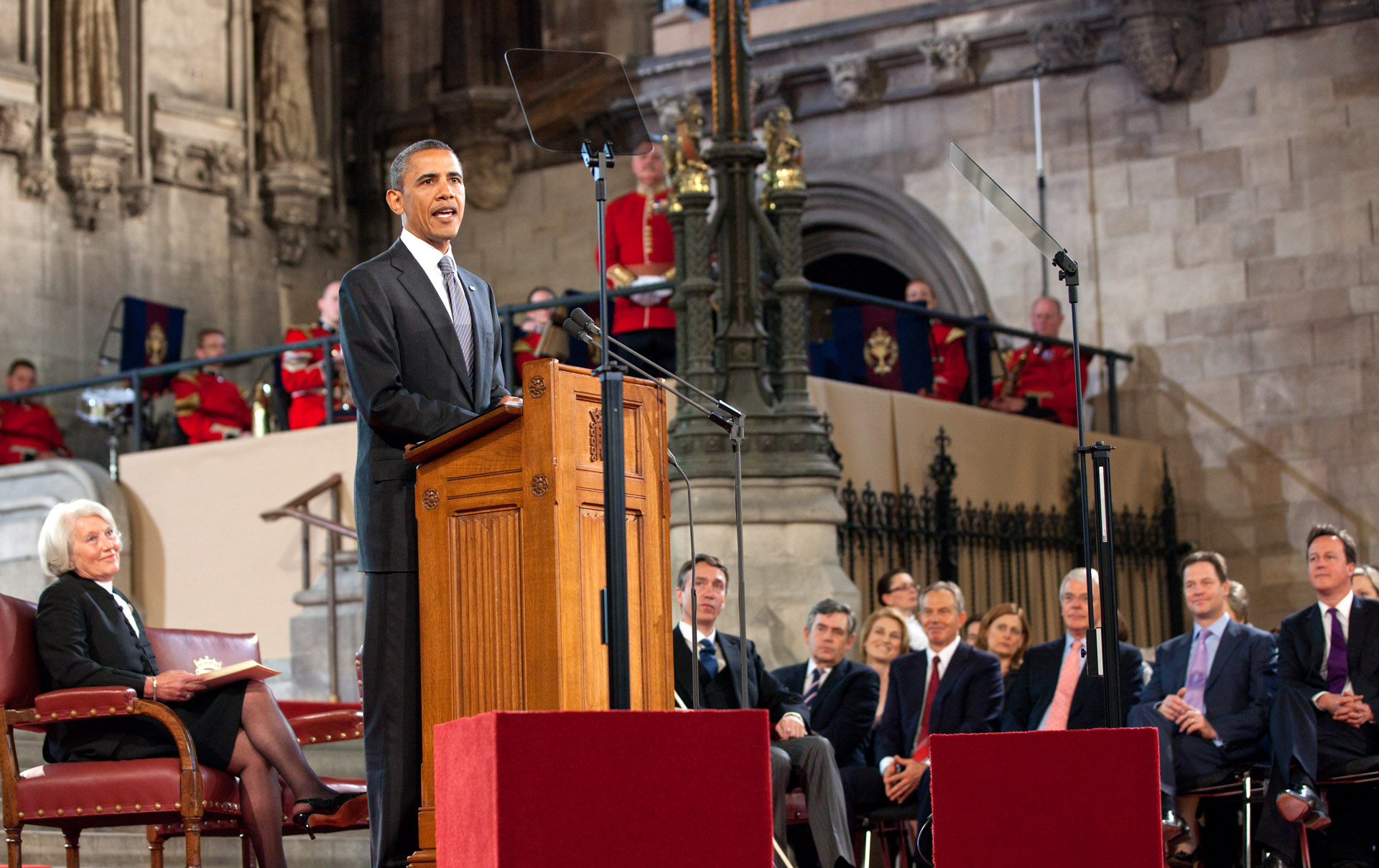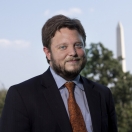
Much of the President's trip to Europe so far had seemed to be light-hearted diplomacy, from joining an excited crown in Dublin to toasting the Queen and a tour of Buckingham Palace. But as President Obama spoke to "the Mother of Parliaments" at Westminster Hall, it was a stark reminder of just closely linked our fates are. He began with a recounting of our shared history, from "a small scrape about tea and taxes" to sacrificing "side by side to free a continent from the march of tyranny, and help prosperity flourish from the ruins of war."
Even more stark, though, was the myriad of challenges facing out two nations today. Turmoil, war and democracy in the Middle East; the ongoing threat of loose nuclear materials and the hope that we can move towards a world where nuclear weapons no longer threaten us; these, along with countless other eruptions and issues around the world, can only be dealt with through international cooperation. And the U.S. and the UK will always be at the forefront of that.
Right now, though, the American and British people are rightly concerned about their own economies first and foremost, and here too the President laid out a strong case for our importance to each other:
In other words, we live in a global economy that is largely of our own making. And today, the competition for the best jobs and industries favors countries that are free-thinking and forward-looking; countries with the most creative and innovative and entrepreneurial citizens.
That gives nations like the United States and the United Kingdom an inherent advantage. For from Newton and Darwin to Edison and Einstein, from Alan Turing to Steve Jobs, we have led the world in our commitment to science and cutting-edge research, the discovery of new medicines and technologies. We educate our citizens and train our workers in the best colleges and universities on Earth. But to maintain this advantage in a world that’s more competitive than ever, we will have to redouble our investments in science and engineering, and renew our national commitments to educating our workforces.
We’ve also been reminded in the last few years that markets can sometimes fail. In the last century, both our nations put in place regulatory frameworks to deal with such market failures -- safeguards to protect the banking system after the Great Depression, for example; regulations that were established to prevent the pollution of our air and water during the 1970s.
But in today’s economy, such threats of market failure can no longer be contained within the borders of any one country. Market failures can go global, and go viral, and demand international responses.
A financial crisis that began on Wall Street infected nearly every continent, which is why we must keep working through forums like the G20 to put in place global rules of the road to prevent future excesses and abuse. No country can hide from the dangers of carbon pollution, which is why we must build on what was achieved at Copenhagen and Cancun to leave our children a planet that is safer and cleaner.
Moreover, even when the free market works as it should, both our countries recognize that no matter how responsibly we live in our lives, hard times or bad luck, a crippling illness or a layoff may strike any one of us. And so part of our common tradition has expressed itself in a conviction that every citizen deserves a basic measure of security -– health care if you get sick, unemployment insurance if you lose your job, a dignified retirement after a lifetime of hard work. That commitment to our citizens has also been the reason for our leadership in the world.
And now, having come through a terrible recession, our challenge is to meet these obligations while ensuring that we’re not consuming -- and hence consumed with -- a level of debt that could sap the strength and vitality of our economies. And that will require difficult choices and it will require different paths for both of our countries. But we have faced such challenges before, and have always been able to balance the need for fiscal responsibility with the responsibilities we have to one another.




